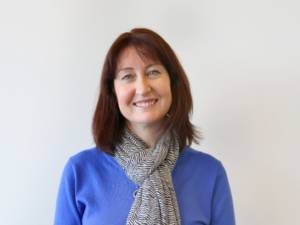Cancer a hit to the heart and the back pocket
11 June, 2018

A/Prof Louisa Gordon (Photo credit: Dr Richard Johns FSCCA)
One quarter of Queenslanders diagnosed with cancer will pay upfront doctors’ fees of more than $20,000 in the first two years, according to a new study shining a light on out-of-pocket costs for survivors.
Researchers from QIMR Berghofer Medical Research Institute have investigated the financial burden faced by Australian cancer patients, with the findings published in the Medical Journal of Australia today.
QIMR Berghofer Health Economist, Associate Professor Louisa Gordon, said she calculated the out-of-pocket costs paid by 452 people who were diagnosed with cancer between November 2010 and 2011.
She said researchers obtained Medicare data for patients diagnosed with melanoma (200), breast cancer (84), prostate cancer (114), cancer of the colon or rectum (30), and lung cancer (24), and confirmed each diagnosis with the Queensland Cancer Registry.
Associate Professor Gordon said being out-of-pocket was stressful for patients and households.
“Paying high out-of-pocket fees is a huge burden on top of being told that you have cancer,” Associate Professor Gordon said.
“It may not be that a patient is necessarily charged a great amount by one doctor – it may just be a few hundred here or a thousand there – but it’s the accumulated cost of their cancer over time.
“On top of that, many patients will be unable to work while they are receiving treatment or recovering from treatment, so it’s a double-whammy.”
The study found total medical treatment fees were highest for patients with lung cancer (median $22,011) or breast cancer (median $21,581) and lowest for melanoma (median $5248).
Queenslanders diagnosed with breast cancer (median $4192) or prostate cancer (median $3175) paid the highest out-of-pocket expenses, largely due to the additional cost of surgery.
Lung cancer patients paid the lowest out-of-pocket expenses (median $1078) however, this was due to poor survival following diagnosis.
Associate Professor Gordon said while costs for doctor consultations, tests, imaging, procedures and drugs were included in the study, extra fees from travel, parking, and lost time or income, were not.
“People who are diagnosed with cancer often have a very complex journey where they see multiple health professionals and may need to endure multiple treatments or combinations of therapies,” she said.
“Out-of-pocket costs are getting higher because we’ve got many more tests and procedures that are taking place, including genetic testing, imaging and other tools.
“Patients are more likely to be on medication for longer and there’s also ongoing monitoring and surveillance. These are all additional contact points with the health system, which drive up costs.”
Associate Professor Gordon said the onus was on patients to talk to their specialist to ensure they knew what they would be charged for a particular procedure.
“While greater transparency of doctors’ fees would help to level the playing field, the reality is that within our current health system, the onus is really on patients to take control,” she said.
“Often, it’s very difficult to know what costs you will be hit with because it depends on so many factors unique to your particular cancer and the treatments you have.
“However, if you speak to your doctor and the fees are too high; ask them whether you can be treated in a public hospital or if there are any other options.
“If you have private health insurance, you need to call your health insurer and find out what you will get back if you undergo a certain procedure, and what you are covered for.”
Associate Professor Gordon said 74 per cent of the sampled cancer patients had private health insurance, which meant the data was not representative of the broader Australian population.
She said her next priority was to analyse and identify the out-of-pocket costs paid by a larger sample of patients undergoing general procedures in both public and private settings.
The article was published in the Medical Journal of Australia, doi: 10.5694/mja17.00815.
Audio: MJA Podcasts 2018 Episode 45: Out-of-pocket costs, with A/Prof Louisa Gordon
Media: QIMR Berghofer Media, +61 7 3362 0280, email: media@qimrberghofer.edu.au.




